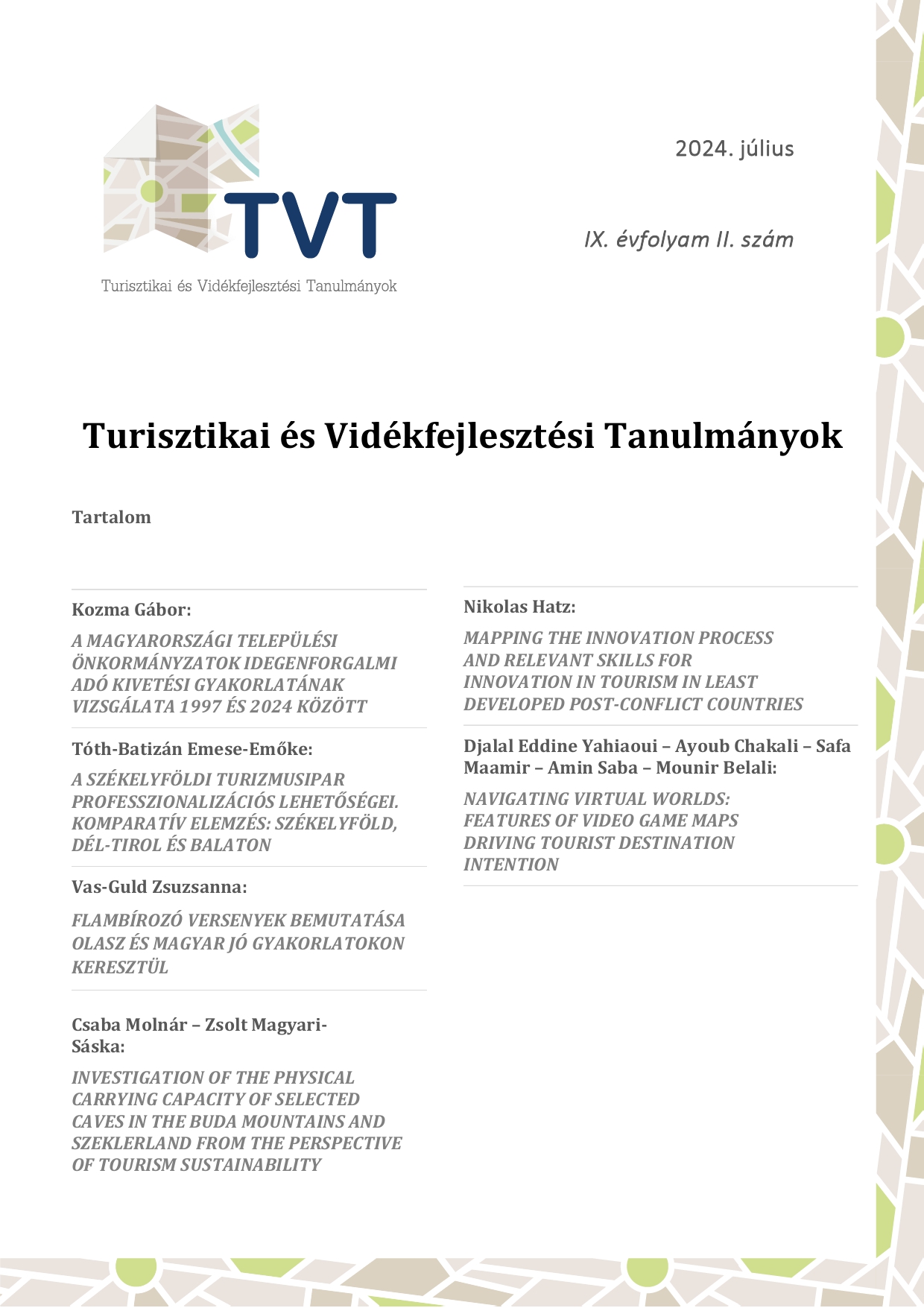Mapping the innovation process and relevant skills for innovation in tourism in least developed post-conflict countries
DOI:
https://doi.org/10.15170/TVT.2024.09.02.05Keywords:
competitiveness, innovation process, innovation skills, least developed countries, tourism developmentAbstract
As more countries are turning to the tourism sector for economic, social, and environmental development, related firms must improve their competitiveness with innovative products and services meeting customer and market demands. By interacting with customers, employees can identify innovative ideas, requiring employees to develop relevant skills and to understand innovation’s potential. This paper develops the 6×3 Innovation Process Framework, considering specific contextual factors for innovation in tourism in least developed post-conflict countries (LDPCCs) while emphasizing innovation activation as the first phase. The findings advance existing research in tourism development, tourism’s potential in post-conflict contexts, and innovation in tourism in general and the innovation process in particular. The developed framework also allocates relevant skills for innovation (‘innovation skills’) to the stages of each process phase, enabling the developed framework to clarify the innovation process for tourism firms. Therefore, the developed framework constitutes a practical assessment and planning tool for improving employees’ innovative behavior and establishing a comprehensive plan for innovation skills training across tourism firms aiming to improve their innovative behavior.


